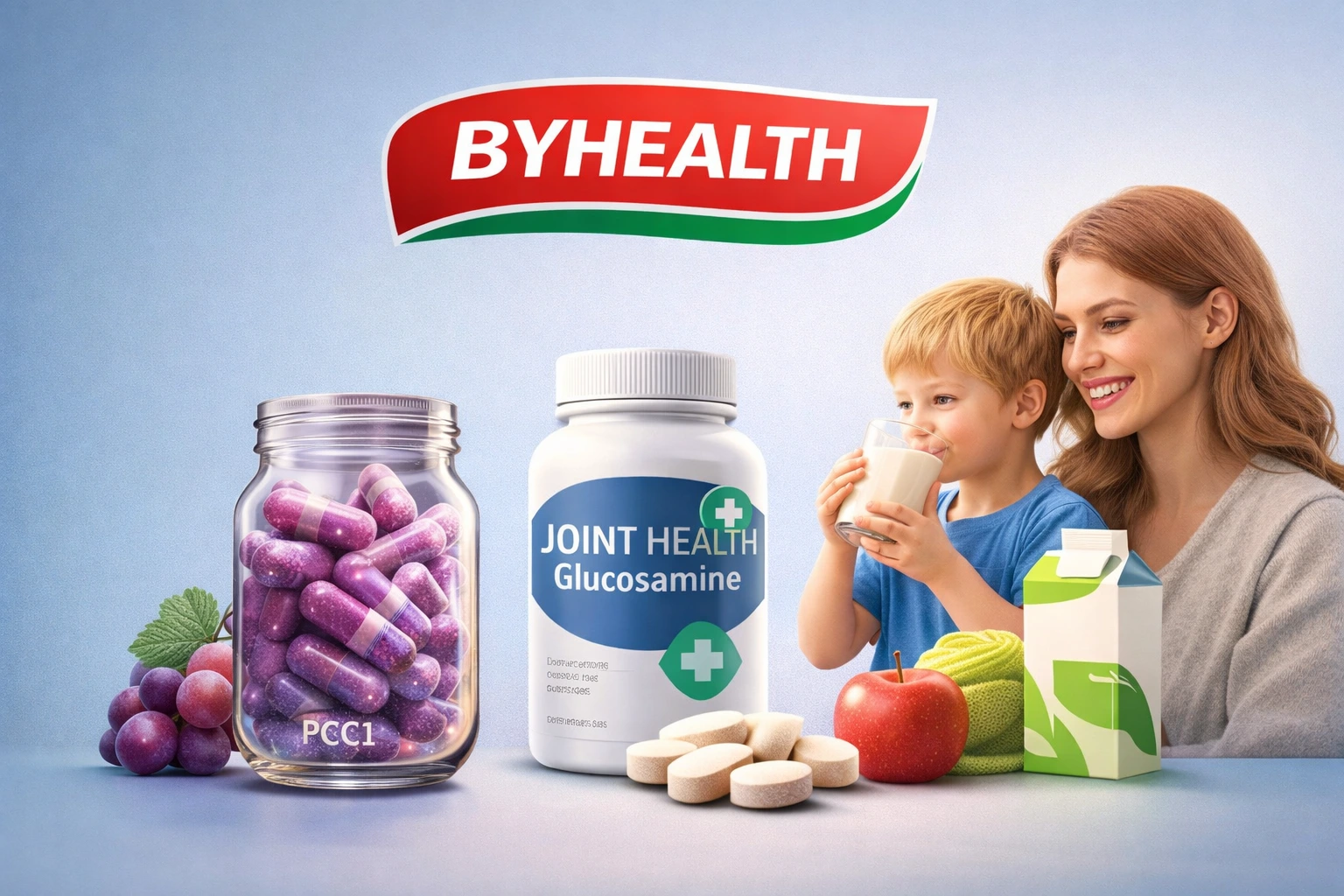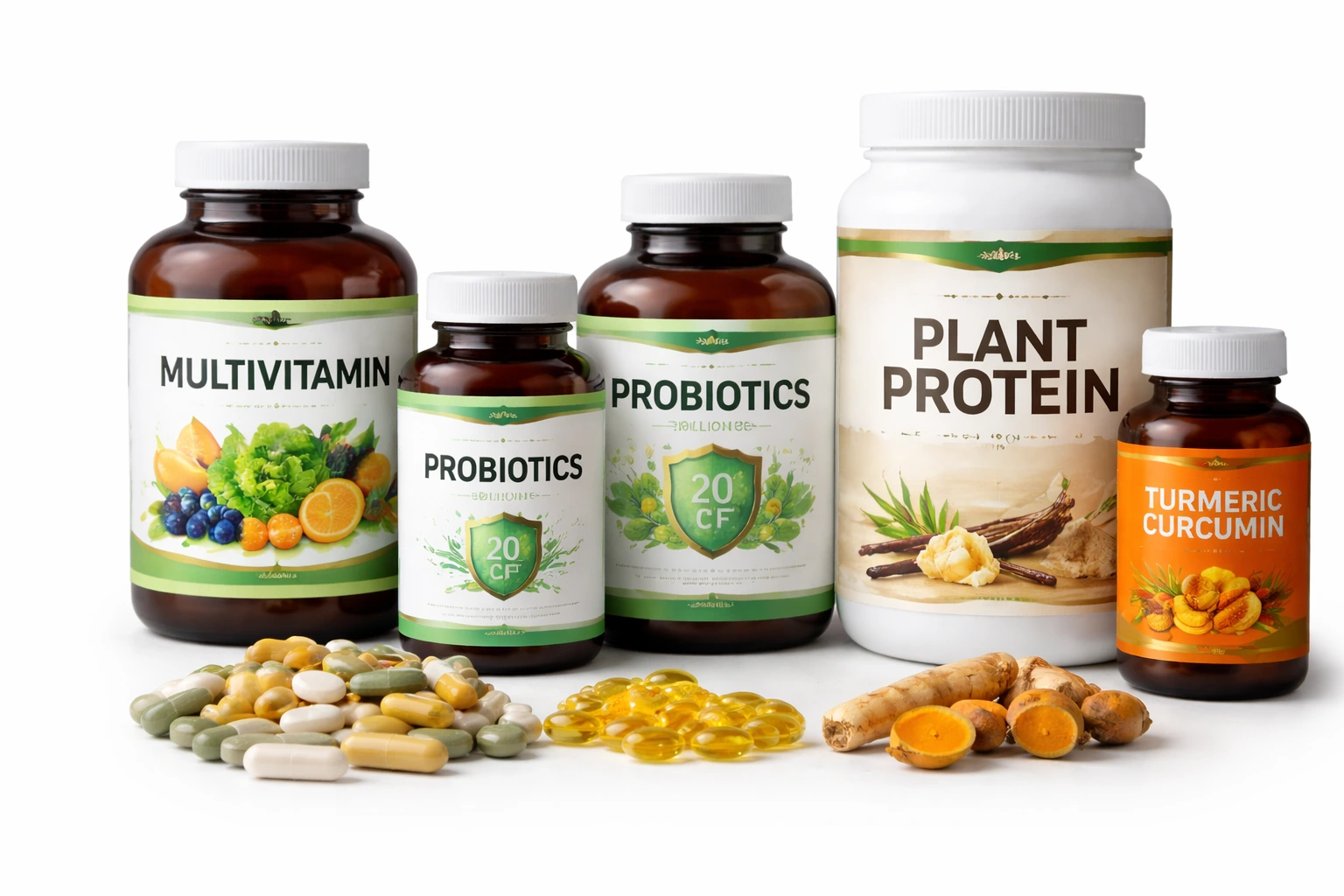Athletic and wellness markets are booming, and starting your own supplement company can be a lucrative way to tap into this growing industry. However, creating a successful supplement brand requires more than just a good idea—it demands careful planning, regulatory compliance, smart manufacturing partnerships, and strategic marketing. Whether you aim to launch capsules, powders, gummies, or functional beverages, understanding the full landscape of supplement business creation is crucial.
This guide breaks down the process into actionable steps to help entrepreneurs navigate regulatory requirements, production logistics, branding, and market strategy, ensuring your company can launch safely, efficiently, and profitably.
Define Your Brand Vision and Market Niche
Before anything else, you need a clear brand vision:
-
Who is your target audience? Fitness enthusiasts, seniors, busy professionals, or health-conscious consumers?
-
What problem does your product solve? Joint support, cognitive enhancement, immunity, weight management, or general wellness?
-
What formats will your products take—capsules, tablets, powders, gummies, or functional beverages?
Market research is essential:
-
Analyze competitor products, pricing, and marketing strategies.
-
Identify gaps in the market where your product can differentiate itself.
-
Validate demand through surveys, social media insights, or pre-launch campaigns.
A clearly defined niche allows you to create a brand story that resonates with your target consumers, positioning your supplements as a solution rather than just another product.
Understand Regulatory Requirements
The supplement industry is heavily regulated, and non-compliance can lead to legal issues, product recalls, and reputational damage. Depending on your target market, you need to be aware of:
United States:
-
FDA registration for dietary supplements.
-
Compliance with cGMP (Current Good Manufacturing Practices).
-
Accurate labeling under the Dietary Supplement Health and Education Act (DSHEA).
European Union:
-
EFSA regulations and approval for novel foods.
-
Compliance with labeling, safety, and health claim requirements.
Other regions:
-
Health Canada: Natural Product Number (NPN).
-
Australia: Therapeutic Goods Administration (TGA) guidelines.
-
Middle East: Halal certifications if targeting that market.
Pro tip: Always work with a legal or regulatory expert to ensure your formulas, claims, and labels meet the relevant standards. Early compliance planning avoids costly delays or fines.
Develop Your Product Formulation
Once your brand vision and niche are clear, the next step is creating an effective and safe supplement formula. This process combines science, regulatory compliance, and market appeal:
1. Ingredient Selection
-
Choose ingredients with scientific backing and documented efficacy. Examples include vitamins, minerals, herbal extracts, probiotics, and amino acids.
-
Consider bioavailability: The form of the nutrient affects how well the body absorbs it (e.g., magnesium citrate vs. magnesium oxide).
-
Address potential allergens and dietary restrictions, like gluten, soy, or vegan preferences.
2. Dosage and Safety
-
Set effective doses based on clinical studies, regulatory limits, and tolerability.
-
Avoid overdosage, which can trigger regulatory scrutiny or consumer safety issues.
-
Factor in interactions with other common supplements or medications.
3. Unique Selling Proposition (USP)
-
Differentiate your brand by innovative delivery formats (e.g., gummies with high bioavailability, effervescent powders).
-
Consider synergistic blends that combine multiple ingredients for enhanced benefits.
-
Focus on taste, texture, and convenience, which influence repeat purchase and customer loyalty.
4. Testing and Validation
-
Conduct stability and potency testing to ensure ingredients remain effective over shelf life.
-
Include third-party lab testing to verify purity, potency, and absence of contaminants.
By focusing on both efficacy and consumer experience, your product formulation becomes the foundation for a trusted and appealing supplement brand.
Find a Reliable Manufacturer
Selecting the right manufacturer is critical for product quality, compliance, and scalability. Consider the following aspects:
1. Technical Capabilities
-
Can the manufacturer handle your chosen format (capsules, gummies, powders, beverages)?
-
Do they have R&D capabilities to customize formulations and scale production?
-
Check whether they provide in-house quality testing and batch documentation.
2. Regulatory Compliance
-
Ensure the manufacturer adheres to cGMP standards.
-
Confirm certifications such as NSF, USP, ISO 22000, or region-specific approvals.
-
Verify track record with regulatory inspections and product recalls.
3. Financial and Operational Considerations
-
Understand minimum order quantities (MOQs) and production costs.
-
Request transparent pricing including packaging, testing, and labeling fees.
-
Evaluate payment terms and lead times to align with your cash flow and launch timeline.
4. Communication and Partnership
-
Responsiveness and transparency are key for problem-solving and timely updates.
-
A manufacturer who treats you as a partner—not just a client—can provide insights for formulation improvements, supply chain solutions, and trend adaptation.
-
Long-term relationships often unlock preferential pricing, priority production slots, and early access to new technologies.
By carefully evaluating technical, regulatory, and financial aspects, you secure a manufacturing partner capable of delivering high-quality, compliant products while supporting your brand’s growth.
Develop Your Branding and Packaging
Branding is more than just a logo or product name; it’s the story, identity, and value proposition that connects your supplement company with consumers.
1. Brand Identity
-
Define your mission, vision, and core values. Are you promoting natural wellness, performance optimization, or lifestyle convenience?
-
Choose a memorable brand name that reflects your niche, is easy to pronounce, and resonates globally if you plan international sales.
-
Craft a brand story that emphasizes transparency, quality, and innovation to build consumer trust.
2. Packaging Design
-
Packaging must comply with regulatory labeling requirements, including ingredient lists, nutrition facts, and health disclaimers.
-
Visual appeal is crucial: choose colors, fonts, and imagery that communicate trust, effectiveness, and professionalism.
-
Consider user experience: easy-to-open bottles, resealable pouches, and portioned servings improve consumer satisfaction.
3. Differentiation
-
Highlight unique selling points: organic ingredients, patented formulas, high bioavailability, or sustainability initiatives.
-
Use packaging and marketing materials to educate consumers about science-backed benefits, not just marketing claims.
Well-executed branding and packaging create a professional, trustworthy image that encourages repeat purchases and builds long-term customer loyalty.
Step 6: Create a Marketing and Distribution Strategy
Even the best supplements will fail without an effective marketing and distribution strategy. Consider the following aspects:
1. Target Audience & Messaging
-
Clearly define your audience: age, lifestyle, health goals, and spending habits.
-
Tailor messaging to pain points and desired outcomes, whether it’s boosting immunity, enhancing athletic performance, or improving energy levels.
2. Digital Marketing Channels
-
E-commerce platforms: Shopify, Saleor, or Amazon for direct-to-consumer sales.
-
Social media: Instagram, TikTok, LinkedIn, and YouTube for brand awareness and educational content.
-
Email marketing: Build newsletters with tips, promotions, and product updates to nurture customer relationships.
3. Content Marketing & SEO
-
Publish educational articles, blog posts, and videos that highlight the benefits of your supplements.
-
Optimize your website with targeted keywords, meta descriptions, and internal linking to improve search engine visibility.
4. Distribution Strategy
-
Decide between direct-to-consumer (DTC), retail, or hybrid models.
-
Consider subscription models to ensure recurring revenue and customer loyalty.
-
Evaluate international shipping regulations if targeting global markets.
5. Leveraging Partnerships
-
Collaborate with fitness influencers, nutritionists, and wellness professionals for credibility and reach.
-
Consider co-branding opportunities or private-label collaborations with gyms and health stores to expand visibility.
By aligning branding, packaging, and marketing strategy, you create a holistic approach that attracts, educates, and retains customers while reinforcing your company’s professional image.
Operational Management and Compliance
Running a supplement company involves day-to-day operational oversight to ensure quality, efficiency, and regulatory compliance.
1. Quality Control and Assurance
-
Implement strict quality control procedures at every stage: ingredient sourcing, production, packaging, and storage.
-
Maintain batch records and Certificates of Analysis (COAs) for every production lot.
-
Conduct periodic third-party testing to validate purity, potency, and absence of contaminants.
2. Inventory and Supply Chain Management
-
Monitor inventory levels to avoid stockouts or overstocking.
-
Develop relationships with multiple suppliers to mitigate supply chain disruptions.
-
Plan for lead times and production cycles, especially for international manufacturers.
3. Regulatory Compliance and Reporting
-
Stay updated on labeling, health claims, and import/export regulations in target markets.
-
Ensure proper record-keeping for FDA, EFSA, Health Canada, or other regional inspections.
-
Implement a compliance checklist for every product launch to minimize legal risks.
4. Customer Service and Feedback
-
Build systems for customer inquiries, complaints, and reviews.
-
Use feedback to refine formulations, packaging, and marketing.
-
Rapidly addressing issues strengthens your brand reputation and loyalty.
Effective operational management ensures your supplement company runs smoothly while maintaining consumer trust and regulatory compliance.
Step 8: Scaling and Growing Your Supplement Company
Once your company is operational, the focus shifts to growth and long-term sustainability.
1. Expanding Product Lines
-
Introduce new formulations or delivery formats to meet emerging consumer demands.
-
Explore functional beverages, gummies, or personalized nutrition trends for innovation.
-
Leverage existing consumer insights to identify product extensions with high potential.
2. Strategic Partnerships
-
Collaborate with fitness centers, wellness coaches, or nutritionists to increase visibility.
-
Consider co-branding or private-label deals to enter new markets.
-
Build relationships with suppliers and distributors to secure favorable terms and priority production.
3. Marketing and Global Expansion
-
Invest in SEO, content marketing, and social media advertising to capture new audiences.
-
Explore international distribution channels while complying with local regulations.
-
Use data analytics to optimize marketing spend, pricing strategies, and customer retention efforts.
4. Technology and Innovation
-
Implement automated inventory management and CRM systems to streamline operations.
-
Consider AI-driven analytics to predict demand, optimize formulations, and personalize customer experiences.
-
Embrace sustainable manufacturing practices to meet consumer expectations and enhance brand reputation.
5. Financial Planning and Investment
-
Track profit margins, cost per acquisition, and ROI for all campaigns and product lines.
-
Seek funding or reinvest profits to support scaling initiatives like increased production capacity or new product development.
-
Maintain financial reserves for unexpected regulatory or supply chain challenges.
Scaling a supplement company requires a balanced approach, combining innovation, operational excellence, strategic marketing, and regulatory adherence. Companies that plan for growth while prioritizing quality and compliance are best positioned for long-term success.
Launching and Sustaining a Successful Supplement Company
Creating your own supplement company is an exciting but complex journey that combines science, business strategy, and regulatory compliance. Success depends on thoughtful planning, strong partnerships, and the ability to adapt to a dynamic market.
1. Strategic Foundation
A clear brand vision, well-defined market niche, and high-quality product formulation are the pillars of a strong supplement company. By understanding your target audience, selecting scientifically backed ingredients, and designing effective delivery formats, you set your brand up for credibility and consumer trust.
2. Compliance and Quality as Priorities
Navigating regulatory frameworks is crucial for avoiding legal issues and ensuring product safety. Partnering with a cGMP-compliant manufacturer and maintaining rigorous quality control protocols guarantees consistency, potency, and consumer confidence. Regular testing, accurate labeling, and proper documentation are non-negotiable practices that protect your brand.
3. Branding, Marketing, and Distribution
Building a recognizable brand with compelling packaging and messaging differentiates your products in a crowded market. Leveraging digital marketing, SEO, social media, and strategic partnerships expands your reach, attracts loyal customers, and establishes authority. Thoughtful distribution planning, whether direct-to-consumer or retail, ensures your products are accessible and profitable.
4. Operational Excellence and Scalability
Efficient operational management—from inventory and supply chain oversight to customer service and compliance—is essential for sustainable growth. As your company matures, scaling requires expanding product lines, adopting innovative technologies, exploring new markets, and continuously optimizing marketing and operational processes.
5. Long-Term Vision
A supplement company that balances innovation, compliance, operational efficiency, and consumer engagement is positioned for long-term success. Treat your manufacturing and distribution partners as strategic allies, stay ahead of industry trends, and maintain a commitment to quality. This holistic approach ensures your brand delivers safe, effective, and desirable products that resonate with consumers and drive sustained growth.
By following these steps, aspiring entrepreneurs can transform an idea into a thriving supplement company that stands out in a competitive market while meeting the highest standards of safety, efficacy, and professionalism.
Authoritative References
FDA Dietary Supplements Guidance
The U.S. Food and Drug Administration regulates dietary supplements under the Dietary Supplement Health and Education Act of 1994 (DSHEA). This includes guidelines on labeling, manufacturing practices, and safety standards.
https://www.fda.gov/food/guidance-regulation-food-and-dietary-supplements
Current Good Manufacturing Practices (CGMPs) for Dietary Supplements
The FDA's CGMP regulations ensure that dietary supplements are produced consistently and meet quality standards. These practices cover aspects like facility sanitation, equipment maintenance, and production controls.
https://www.fda.gov/food/guidance-regulation-food-and-dietary-supplements/current-good-manufacturing-practices-cgmps-food-and-dietary-supplements
How to Start Your Own Supplement Line
Supliful provides a step-by-step guide on launching a supplement brand, including market research, product formulation, and legal considerations.
https://supliful.com/blog/how-to-start-your-own-supplement-line
10-Step Guide to Starting Your Supplement Company
NutraScience Labs offers a comprehensive 10-step guide covering product development, manufacturing, and marketing strategies for new supplement companies.
https://cdn2.hubspot.net/hubfs/2062774/2019-guides/10-step-guide-to-starting-your-supplement-company-by-nutrascience-labs.pdf
Supplement Branding Principles
Vitaquest outlines key principles for creating a unique brand identity in the competitive supplement market, focusing on differentiation and consumer connection.
https://vitaquest.com/supplement-branding-principles-to-differentiate-your-brand/
Winning Supplement Marketing Strategies
EngageBay discusses effective marketing strategies for supplement brands, including digital marketing, influencer partnerships, and customer retention tactics.
https://www.engagebay.com/blog/supplement-marketing-strategies/
Cost of Starting a Supplement Company
Supliful provides insights into the startup costs, ongoing expenses, and profit margins associated with launching a supplement business.
https://supliful.com/blog/cost-of-starting-a-supplement-company
How to Start a Supplement Business
Sttark outlines a practical approach to starting a supplement business, covering market evaluation, product development, and financial planning.
https://www.sttark.com/blog/how-to-start-a-supplement-business-in-8-steps
Supplement Marketing Strategy in 2025
Digital Agency Network highlights emerging trends in supplement marketing, including shifts in consumer behavior and digital engagement strategies.
https://digitalagencynetwork.com/supplement-marketing-strategy-in-2025-5-big-shifts/
Successful Supplement Marketing Examples
Incrementum Digital showcases case studies of successful supplement brands, focusing on their marketing strategies and brand positioning.
https://incrementumdigital.com/blog/performance-growth/marketing-strategy-examples-ritual-supplement-seed-synbiotic-social-media-marketing-strategy/






